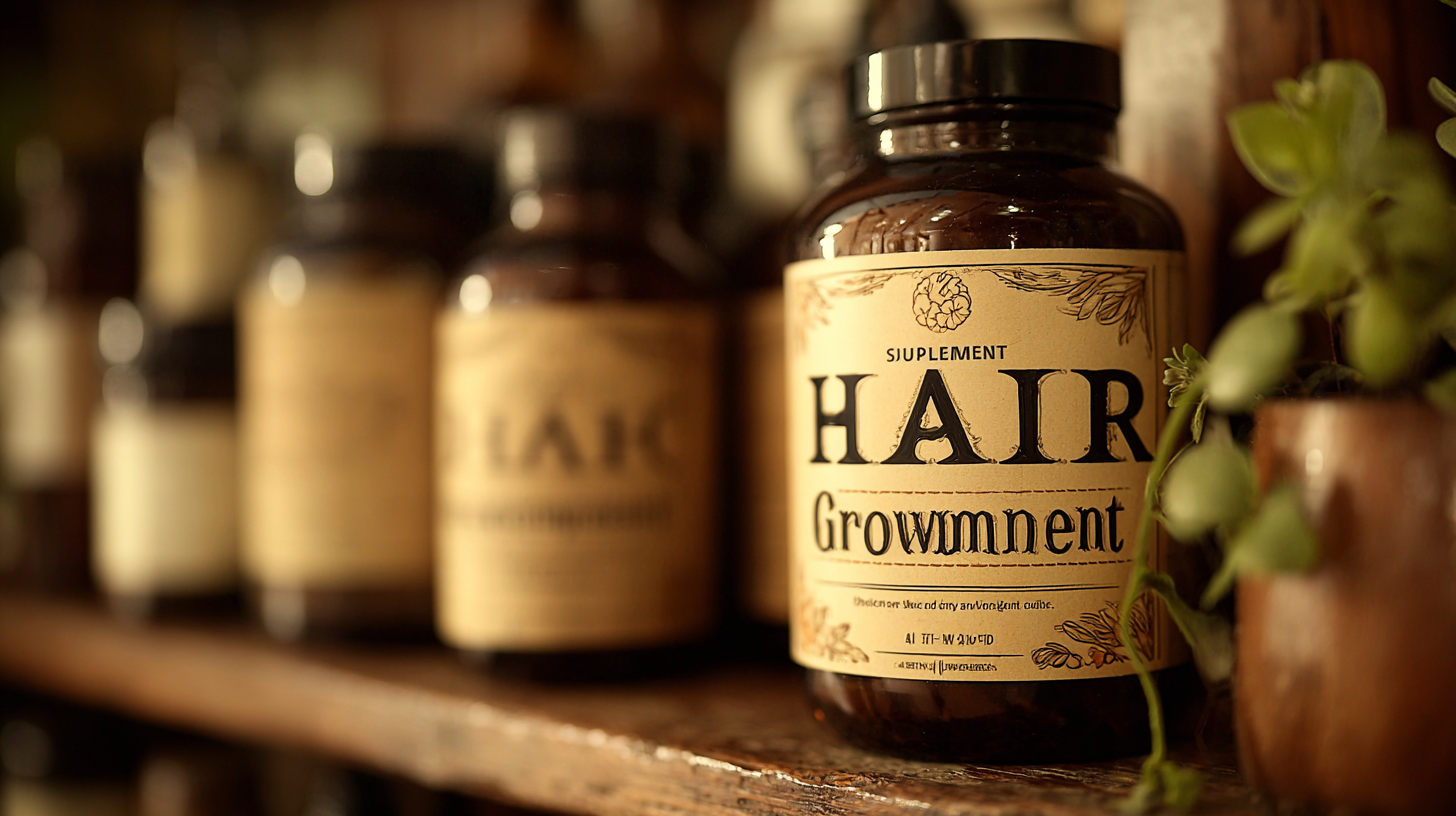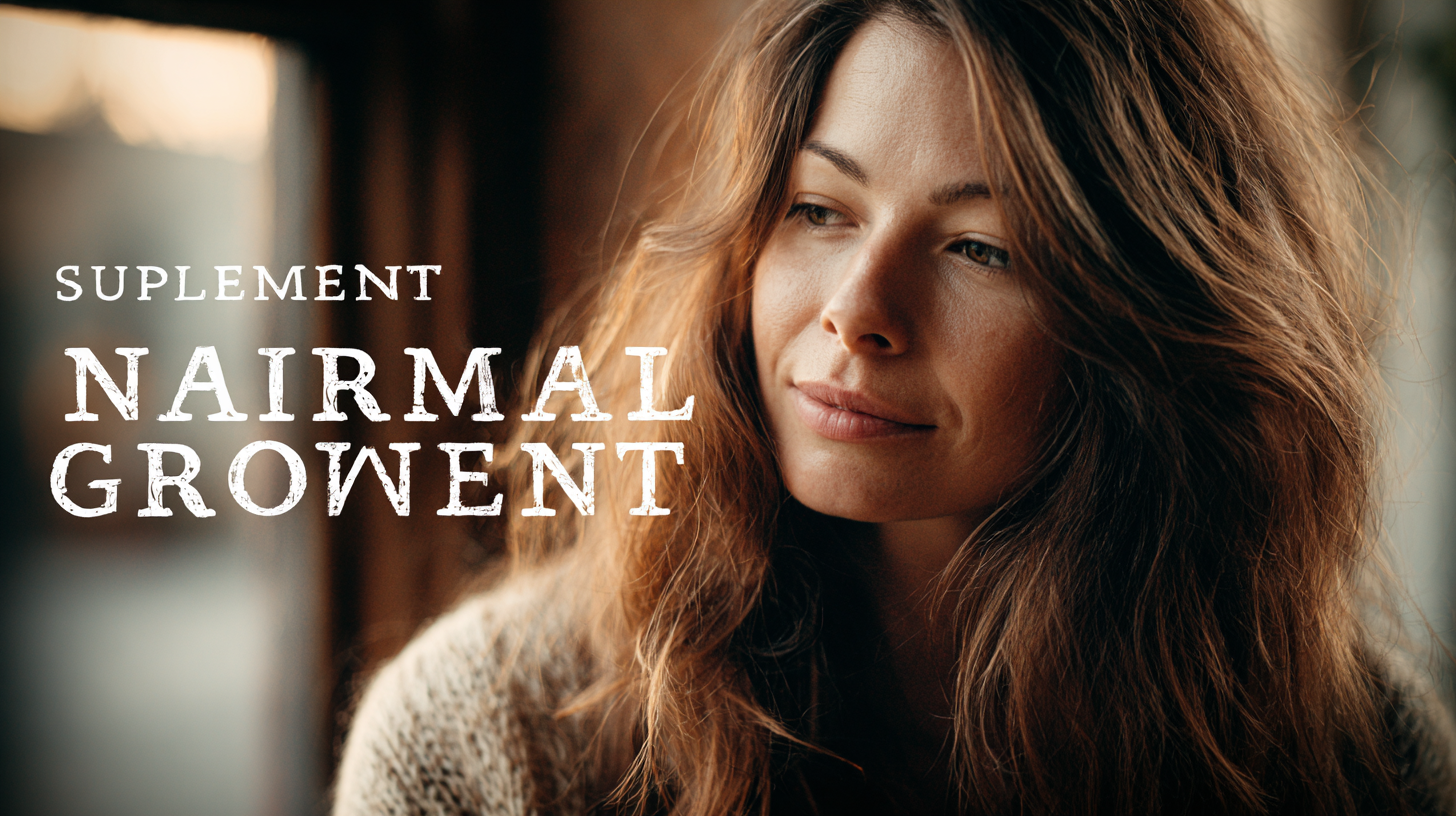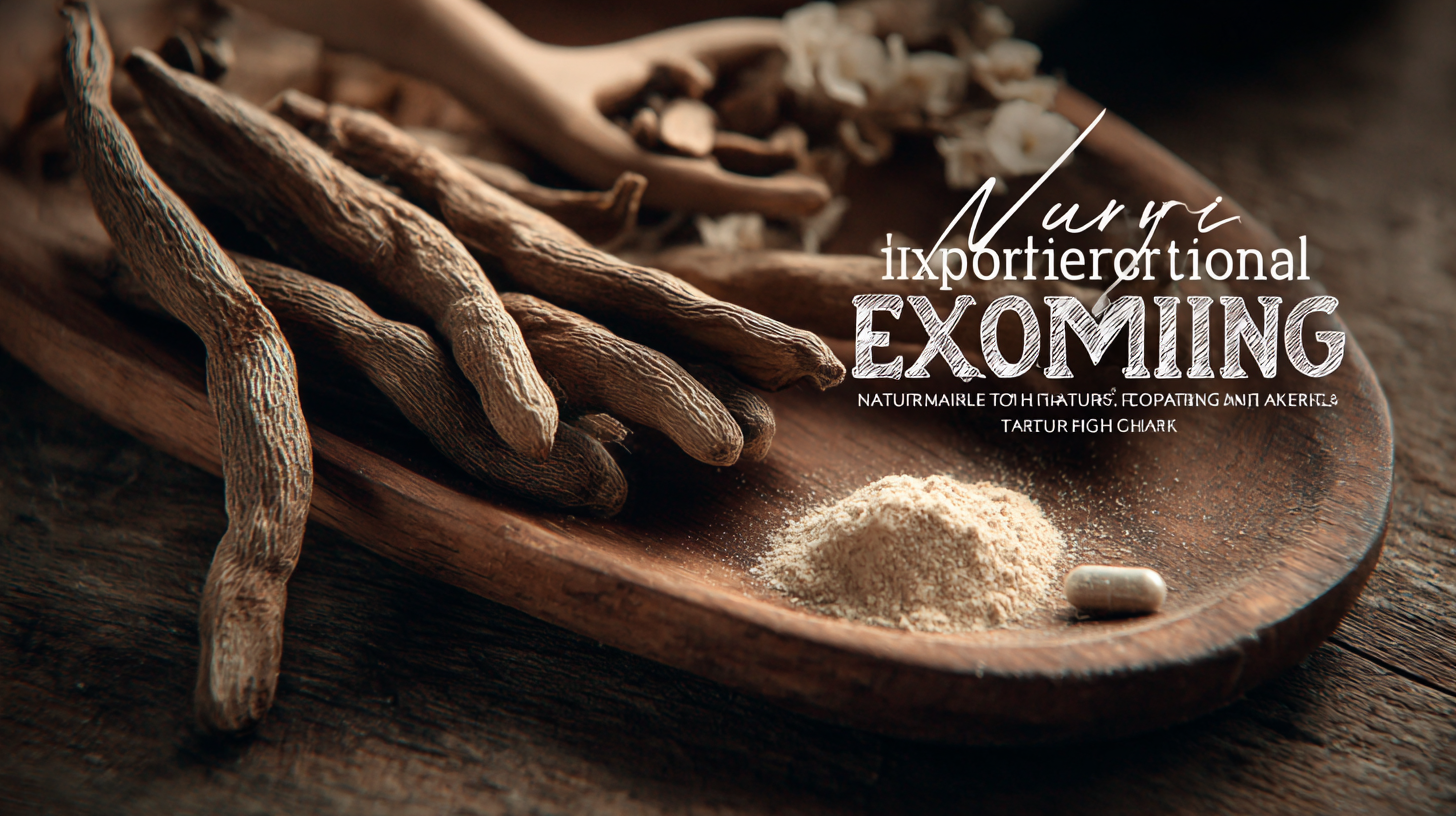
-
Home
-
Products
-
About US
-
FAQ
-
News
-
Tips
-
Contact Us
Leave Your Message
- Phone
- E-mail
- WhatsApp
- WA Business



In recent years, the quest for healthy and vibrant hair has led many to explore a variety of options beyond traditional methods, with a significant shift towards natural alternatives. A comprehensive report by the Global Industry Analysts projects that the global hair care market will reach approximately $102.5 billion by 2025, indicating a strong consumer demand for innovative solutions. While supplements for hair growth have gained popularity, many individuals are increasingly seeking non-supplement options that harness the power of nature. This trend reflects a growing awareness of the potential side effects and limitations of synthetic solutions.

By exploring natural methods such as essential oils, herbal treatments, and dietary adjustments, consumers are not only prioritizing their health but also embracing a holistic approach to hair care. This blog will delve into the top non-supplement options for thriving hair growth, offering insights and practical tips for those looking to enhance their hair health naturally.
When it comes to promoting healthy hair growth, the quality of products is paramount. According to a report by the International Journal of Trichology, approximately 80% of individuals experience hair thinning due to poor-quality hair products that contain harsh chemicals and fillers. These ingredients can strip the scalp of its natural oils, leading to dryness and irritation, which ultimately hampers growth. High-quality hair care products, on the other hand, often harness the power of natural ingredients that support the scalp's health and stimulate hair follicles.
Furthermore, a study published in Dermatology Research and Practice found that natural alternatives, including essential oils and herbal extracts, significantly improve scalp health. For instance, rosemary oil has been shown to promote hair growth as effectively as minoxidil, a common treatment, but without side effects. Choosing quality over quantity ensures that consumers opt for products that contain verified natural ingredients, such as biotin, argan oil, and ginseng, which have been scientifically proven to support hair vitality and prevent hair loss. Investing in quality hair growth products not only fosters healthier growth but also encourages long-term scalp health.
When exploring natural alternatives for promoting healthy hair growth, it's essential to consider the ingredients that have garnered positive attention from industry experts. Research indicates that certain natural elements, such as herbs and vitamins, play a crucial role in stimulating hair follicles and enhancing growth. For instance, saw palmetto has been highlighted in various dermatological studies for its potential to inhibit hair loss by blocking certain hormones responsible for thinning hair. Similarly, horsetail extract, rich in silica, may strengthen hair strands and improve overall hair health.
In addition to these plant-based options, vitamins like B3 have been recognized for their ability to improve blood circulation to the scalp, which is vital for nutrient absorption and hair vitality. A report from beauty justice research emphasizes the importance of choosing personal care products formulated with safe, natural ingredients, particularly regarding the exposed risks to specific demographics. With natural oils also coming to the forefront, many specialists recommend using botanical blends that include nourishing oils known to stimulate hair growth while providing added hydration and protection. This holistic approach not only supports hair resilience but also champions the use of cleaner, safer formulations in hair care.
| Natural Ingredient | Benefits for Hair | Application Method |
|---|---|---|
| Rosemary Oil | Stimulates blood circulation to the scalp, promoting hair growth. | Dilute with carrier oil and massage into the scalp. |
| Coconut Oil | Moisturizes and protects hair from protein loss, preventing breakage. | Apply as a pre-wash treatment or leave-in conditioner. |
| Aloe Vera | Soothes the scalp and conditions hair, helping to reduce dandruff. | Apply fresh gel directly to scalp and hair. |
| Jojoba Oil | Mimics scalp's natural oils, providing moisture and preventing dryness. | Massage into scalp and leave on for a few hours before washing. |
| Green Tea | Packed with antioxidants that may stimulate hair growth and prevent hair loss. | Rinse hair with brewed green tea after washing. |
| Peppermint Oil | Increases blood flow to the scalp, promoting hair follicle health. | Dilute with a carrier oil and apply to the scalp. |
| Honey | Natural humectant that traps moisture and promotes a healthy scalp. | Mix with warm water and apply as a scalp treatment. |
 When exploring natural alternatives for promoting healthy hair growth, evaluating the credibility of manufacturers is paramount. According to a 2022 report by the Market Research Institute, 72% of consumers prioritize brands that transparently share their product sourcing and manufacturing processes. This emphasis on transparency can help users navigate the crowded market, ensuring they choose products backed by scientific evidence and ethical practices.
When exploring natural alternatives for promoting healthy hair growth, evaluating the credibility of manufacturers is paramount. According to a 2022 report by the Market Research Institute, 72% of consumers prioritize brands that transparently share their product sourcing and manufacturing processes. This emphasis on transparency can help users navigate the crowded market, ensuring they choose products backed by scientific evidence and ethical practices.
Additionally, examining third-party testing and certifications can significantly enhance manufacturer credibility. The American Hair Loss Association emphasizes that products carrying seals from recognized testing organizations provide more reliability regarding their efficacy. As the natural hair growth industry grows, ensuring that the chosen products undergo rigorous testing ensures consumers are not only investing in their hair health but also in the trustworthiness of the brands. By focusing on these key factors, individuals can make informed decisions and support companies that adhere to the highest standards of quality and integrity.
Customer reviews and testimonials play a crucial role in assessing the effectiveness of natural alternatives for hair growth. Many users have turned to non-supplement options like essential oils, herbal treatments, and dietary changes in their quest for thicker, healthier hair. For instance, testimonials from individuals using rosemary oil often highlight its stimulating properties, promoting blood circulation in the scalp, leading to noticeable improvements in hair density over time. Such real-life experiences provide valuable insights into how these natural remedies can work, allowing potential users to gauge their effectiveness before trying them.

Another popular natural approach is the use of aloe vera, celebrated for its soothing and nourishing properties. Customer feedback frequently mentions reduced scalp irritation and enhanced hair sheen when incorporating aloe vera gel into their hair care routine. These shared experiences help create a community of users who exchange tips and tricks, fostering a supportive environment for those experimenting with alternative methods for hair growth. As more individuals share their journeys, it becomes clear that these non-supplement options are not just trendy fads but effective solutions that many people are benefiting from.
In today's world, sustainable practices have become essential not only for environmental health but also for our hair care routines. By choosing eco-friendly hair products and methods, we can promote healthier hair growth while minimizing our ecological footprint. The use of natural ingredients free from harsh chemicals can prevent damage and contribute to long-lasting hair vitality. Ingredients like aloe vera, coconut oil, and shea butter not only nourish the scalp but also help in maintaining moisture balance, providing a robust foundation for thriving hair.
Moreover, embracing sustainable practices such as minimizing water waste during hair washing and opting for biodegradable packaging can make a significant difference. By supporting brands that are committed to sustainability, we encourage an industry shift towards ethical production and use of resources. Simple lifestyle changes, like using a silk pillowcase or air-drying hair, can enhance hair health while being kind to the planet. Incorporating these natural and sustainable practices into your hair care routine reflects a holistic approach, prioritizing both personal and environmental well-being.